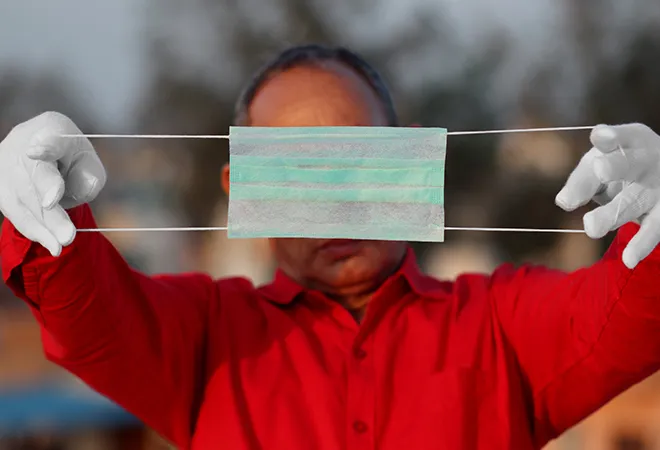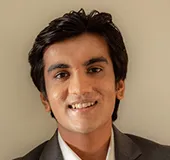
The nationwide lockdown imposed to curb the spread of the COVID-19 pandemic has illuminated the gross inequalities existing in our society. The divide between the “haves” and the “have nots” has been made even more salient in context of the lockdown. With some sections of society comfortable in their homes and stocked with essential supplies, less privileged groups are struggling to survive.
It may seem intuitive to think that the need for mental health interventions for the group identifying as socio-economically privileged may not be an essential undertaking in these times. However, subjective notions of privilege that are formed relative to an understanding of those worse off may also paradoxically worsen mental health rather than improve it – which what one would intuitively assume privilege to do.
Many mental health professionals providing therapy in times of the lockdown have noticed a debilitating sense of guilt reported by their clients who feel that they are not doing enough to help society or feel guilty for not experiencing the same level of suffering vis-a-vis others. Thus, the paradox of privilege at play here is that the socio-economic resources that equip certain sections of society with material comfort are also leaving them with enormous guilt for having this privilege which others don’t, thereby adversely affect their mental health. Note that what constitutes comfort during a pandemic is inherently subjective. Thus, guilt experienced by people for being better off may stem from the fact that the pandemic has exposed gross inequalities between people at varying levels of perceived privilege. This may be leading people to make comparisons with those perceived to be worse off, thereby intensifying their sense of guilt.
This sense of guilt has been found to be closely related to survivors’ guilt. While the experience of frontline medical staff and nurses who are constantly exposed to the devastating effects of the pandemic are especially vulnerable to symptoms of survivors guilt, the far-reaching effects of the pandemic on human life at large makes all sections of society vulnerable to such guilt on some level.
What is survivor’s guilt in context of a pandemic?
Research on survivor’s guilt has conventionally occurred in context to Post-Traumatic Stress Disorder. Conversations around this concept gained prominence in the aftermath of the Holocaust wherein many survivors reported feeling a guilt for surviving the catastrophe while their friends and family could not. Survivors guilt has been associated with a tendency to engage in a “series of counterfactual thoughts about how I could have or should have done something” to alter the course of events. Thus, the comorbidity of survivor’s guilt with PTSD as experienced by war veterans, survivors of airplane crashes and other catastrophes has been extensively documented.
However, the significance of survivor's guilt in context of a pandemic while underserved, must not be understated. The conversation around secondary traumatic stress has also seen a resurgence in context of the pandemic. Constant secondhand exposure to the devastating effects of the pandemic through the news of rising death tolls, large scale unemployment affecting the world at large may trigger symptoms of secondary trauma which in turn makes the conversation of survivors guilt during the lockdown all the more pertinent. Since symptoms of secondary traumatic stress may be offset by observing the news or how the virus has affected close kin members without having to necessarily be affected by the stressor firsthand, susceptibility to mental distress seems to transcend notions of mere material privilege. Thus, acknowledging the possibility of guilt for those who feel they have it better off in comparison to others must be addressed in the conversation around improving mental health outcomes borne out of the lockdown.
Once the prevalence of this sense of guilt is acknowledged, understanding the sources of our guilt is also important. The evolutionary basis of guilt is to keep humans positively connected to others and help forge meaningful social relationships. Guilt acts as a means to control our impulses and need for self-gratification while also keeping our moral code intact by reminding us of the social implications of our actions. Thus, guilt is not necessarily a bad thing but feeling excessive guilt for events beyond one’s realm of control may be counter-productive.
Suffering is relative and not absolute
While there is no denying that the plight of migrant workers in India who don’t have access to essential supplies is far worse than that of someone curled up under a blanket in the comfort of air conditioning, using this reality as a pretext for feeling guilty is also an error in attribution that neither absolves one of his/her privilege and further exacerbates the mental health effects of the pandemic. For instance, some psychologists have reported that clients who recovered from the virus also reported feeling guilt for surviving the pandemic while others they knew are still battling the disease. “It broke my heart to know that some of the people that I sing with had passed away, and others were in the hospital fighting for their lives” noted Clay Bentley- a man who contracted the virus at a choir recital and subsequently achieved a speedy recovery. Thus, Clay Bentley’s sense of guilt stemmed from the fact that his friends in the choir were unable to recover like he did which in turn triggered feelings of guilt.
In a similar vein, those completely unaffected by the virus also compare their lives to the plight of those affected and feel guilt for being better off. Thus, there seems to be a sense of guilt affecting people at varying degrees of perceived privilege manifesting through comparisons with those relatively worse off to rationalise the sense of guilt.
It is important to note that suffering and appraisal of pain is relative to one’s life experience and comparing one’s own perception of pain to some normative standard of what ought to be painful is a maladaptive schema that worsens mental health. Thus, for someone who is privileged enough to have food and other essential supplies during the lockdown but is experiencing social alienation for the first time, the veracity of this pain must not be compared to someone else’s more extreme suffering and instead should be addressed as a legitimate concern in and of itself. Unfortunately, a sense of guilt acts as an inhibitor to truly acknowledging the veracity of these concerns. Instead, comparisons with other people who are perceived to be worse off make some people trivialise their own mental wellbeing which is especially dangerous in these unprecedented times.
How to deal with this guilt?
Psychologists confronted with clients feeling guilty for their privilege have often turned to the phrase, “turn your guilt into gratitude”. This may sound easy but those working with clients to replace debilitating guilt with gratitude note that it is not easy as one may think. Replacing the negative schema of “I don’t deserve this luxury while other people are suffering” with “I am lucky to have this luxury” is an important starting point. This restructuring of cognitions acts as the basis for positive change wherein one may use this sense of gratitude to help those around them rather than merely feeling guilty which prevents any positive action.
It is also important to understand the basis of this guilt and why it is a natural human response that reflects human empathy. In such times of collective suffering, empathy is not only for one’s close-knit community but society at large and this sense of guilt must be understood as an extension of our innate tendency to empathise. Lastly, acknowledging the idea that suffering is relative is crucial. This realisation may prevent trivialising one’s own problems in comparison to other seemingly bigger worries. Thus, instead of abstract comparisons of who has it worse, it may be better to assert that, “my grief understands your grief”, however benign it may seem. Such changes to notions of the self may help undo the paradox of privilege that seems to be contributing to mental distress when in fact privileges are meant to alleviate and dampen the distress borne out of a global pandemic.
The views expressed above belong to the author(s). ORF research and analyses now available on Telegram! Click here to access our curated content — blogs, longforms and interviews.




 PREV
PREV


